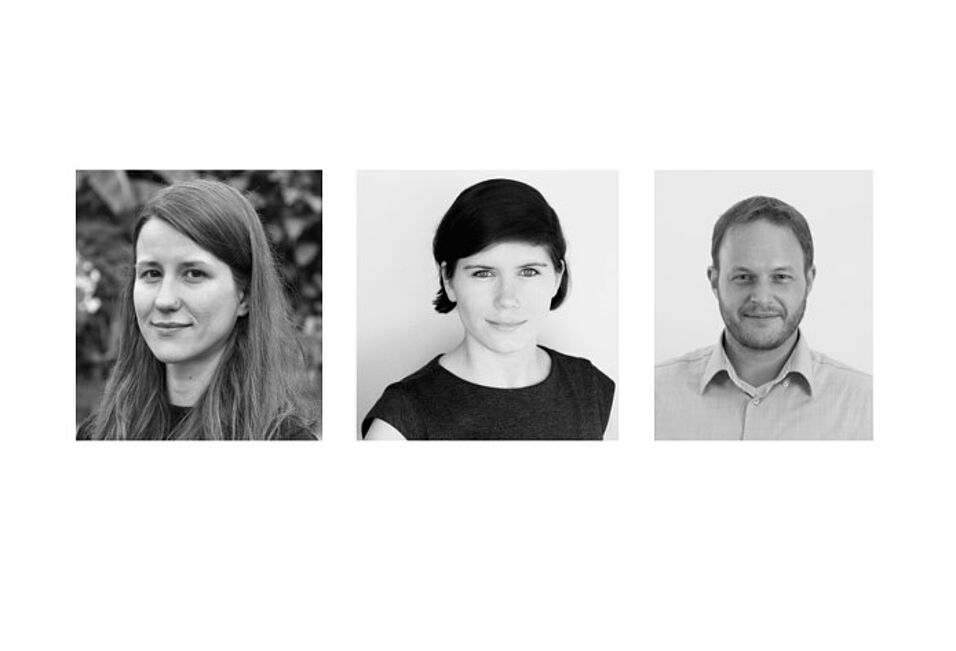by Seliem El-Sayed & Katja Mayer
Following a welcome and introduction to the topic by Rector Engl, we had the honor to celebrate the kick-off in the form of a panel discussion with three renowned experts: Prof. Sandra Wachter, associate professor and senior research fellow in data ethics, artificial intelligence, robotics and internet regulation at the Oxford Internet Institute, University of Oxford; Dr. Christof Tschohl, scientific director of the Digital Human Rights Center in Vienna; and Ingrid Brodnig, journalist and author of several books on online power relations and hate speech.
The three major issues - of the present and the future
During the panel discussion three points emerged as particularly urgent and important: Data protection, discrimination, and the question of how to open the “blackbox” of digital technology. The panelists advocated for a broad understanding of the term “data protection” and argued that relevant institutions – in the public sector, as well as in industry - must reflect ethical and legal issues during design, development and implementation phases. A thorough impact assessment before the deployment of a new technology is therefore indispensable - a point to which we return below. Further, algorithms can often act as a magnifying glass for societal power inequities, and lead to discrimination in law and in fact. A prime example of this phenomenon is the grading algorithm used in the UK during the Covid-19 pandemic to predict school grades. The algorithm suggested lower grades for poorer students.
As algorithms are used in an increasing number of domains, questions of “what’s inside the blackbox” will gain in importance. What data points exactly were used in the “blackboxes” responsible for the decision to grant or postpone parole of detainees, for the pricing of a car insurance premium, or for access to certain information about personal and private preferences relevant for the targeting of political propaganda? Does and should an affected person have the right to know and be explained how a certain decision was reached by an automated system? These are some of the tricky emerging questions regarding the governance of algorithms. The platform’s lecture series, scheduled to begin in October 2021, will pick up several of these problems. For instance, it includes lectures titled “Governance Of and By Algorithms” and “Algorithms and Discrimination”.
Should we tell Big Tech what to do?
Concerning the relationship between private companies, politics, administration and knowledge institutions, the panelists argued that policymakers needed to be more proactive with regards to digitization. The importance of technology impact assessment at the earliest stage of the deliberation, design and development process cannot be overstated and is relevant not only when introducing a new algorithm in a government agency but also at the level of legislation affecting digital technologies. This is not only necessary to ensure transparency and acceptance of the new technology by the public, but also to consider whether introducing a new technology ultimately harbors more risks than benefits. This is all the more applicable in times of crisis where possibly insufficiently mature technologies are put to use rapidly and sometimes without sufficient testing. Lastly, the state can only expect private companies to be diligent about data protection and impact assessment if it leads by example when bringing digital technologies in-house. The role of Big Tech is a complicated one. Noting that government lobbying by Big Tech companies can have the goal of slowing down or preventing regulation, Sandra Wachter stressed that she had good experiences with companies taking into consideration critical science advice and welcoming when “you tell them what to do”. In particular, concrete ideas on how to measure fairness have been welcomed by Big Tech in Wachter’s experience.
The relationship between public and private actors in governing digitization is also a central concern for the platform's PhD projects. For instance, Paul Dunshirn's project explores the global pathways digital sequences from marine environments travel from the moment of genetic sampling to the point of commercialization in the form of patents. Seliem El-Sayed’s project analyses where researchers relying on digital methods lack ethical guidance and how digital methods in social science research change the way knowledge is produced.
We need better science policy interfaces
The problems related to digital technologies we are currently experiencing were not unforeseen. The knowledge needed to govern digital practices does exist, but must be called up from policymakers to be of sufficient value. Interfaces facilitating such access to information for policymakers are only insufficiently developed today. Transformative effects of Big Data on the way we live and work have been emphasized by scholars in many disciplines and civil society organisations for almost 20 years, and they manifest in a multitude of ways. With our platform, we will continue this critical tradition of interrogating and bringing together those different manifestations. Elisabeth Steindl’s project, for instance, focuses on the delivery of e-mental health services and the associated legal problems. Meanwhile, Rasmus Wardemann’s research project is driven by the insight that the implementation of the FAIR (Findable, Accessible, Interoperable, Reusable) data principles creates potential problems regarding the governance of academic labor. In the open discussion following the panel debate it further crystalized that in addition to policymakers, staff working in public administration requires re- and additional training to build digital expertise in-house.
The event closed with remarks from the panelists on what they wished the work of the platform would focus on in the future. Ingrid Brodnig articulated her hopes for the research platform to come up with concrete proposals for policy makers and encouraged researchers to be creative in their design of research projects. Christof Tschohl recommended platform members to pay particular attention to the underlying power (a)symmetries enabling the digital world to function the way it currently does. And Sandra Wachter urged all platform members to ‘think big and think brave’. There is a solution for each and every problem if enough thought and resources are put into it. The successful kick-off event gives us ample motivation for commencing work in this spirit.

